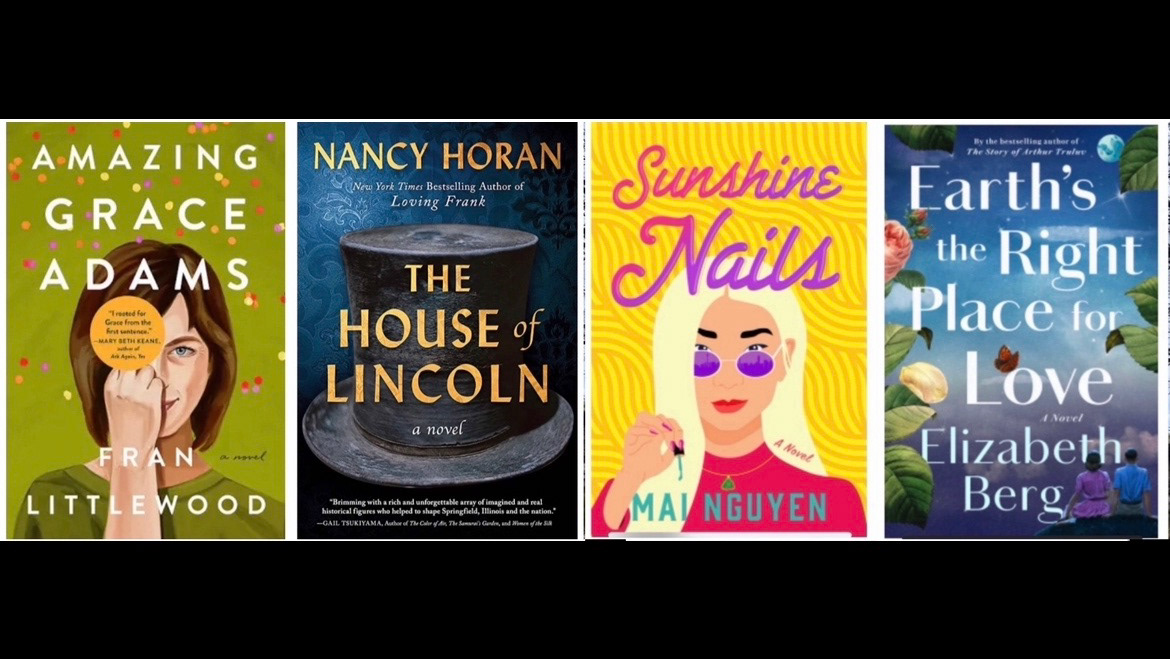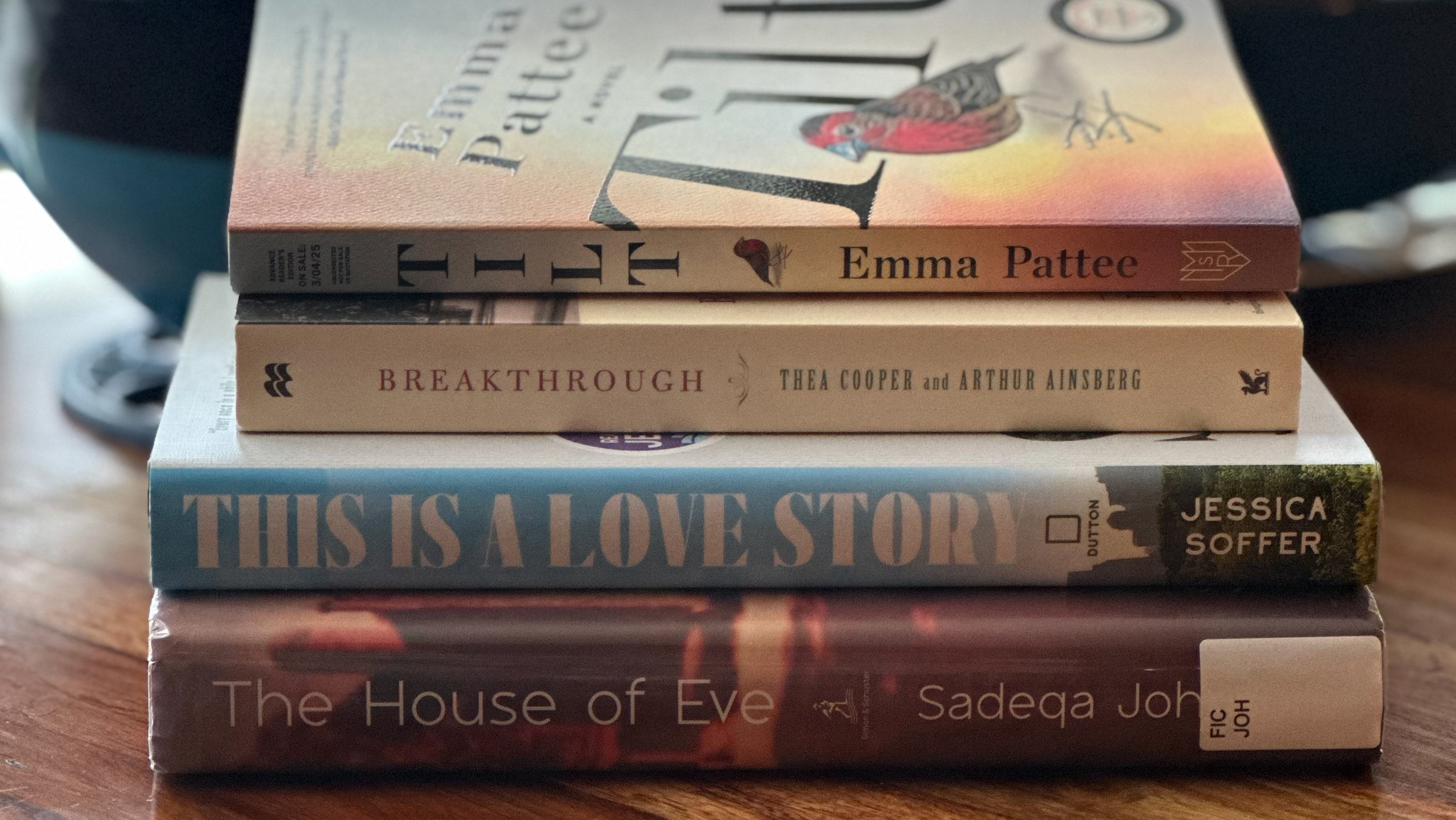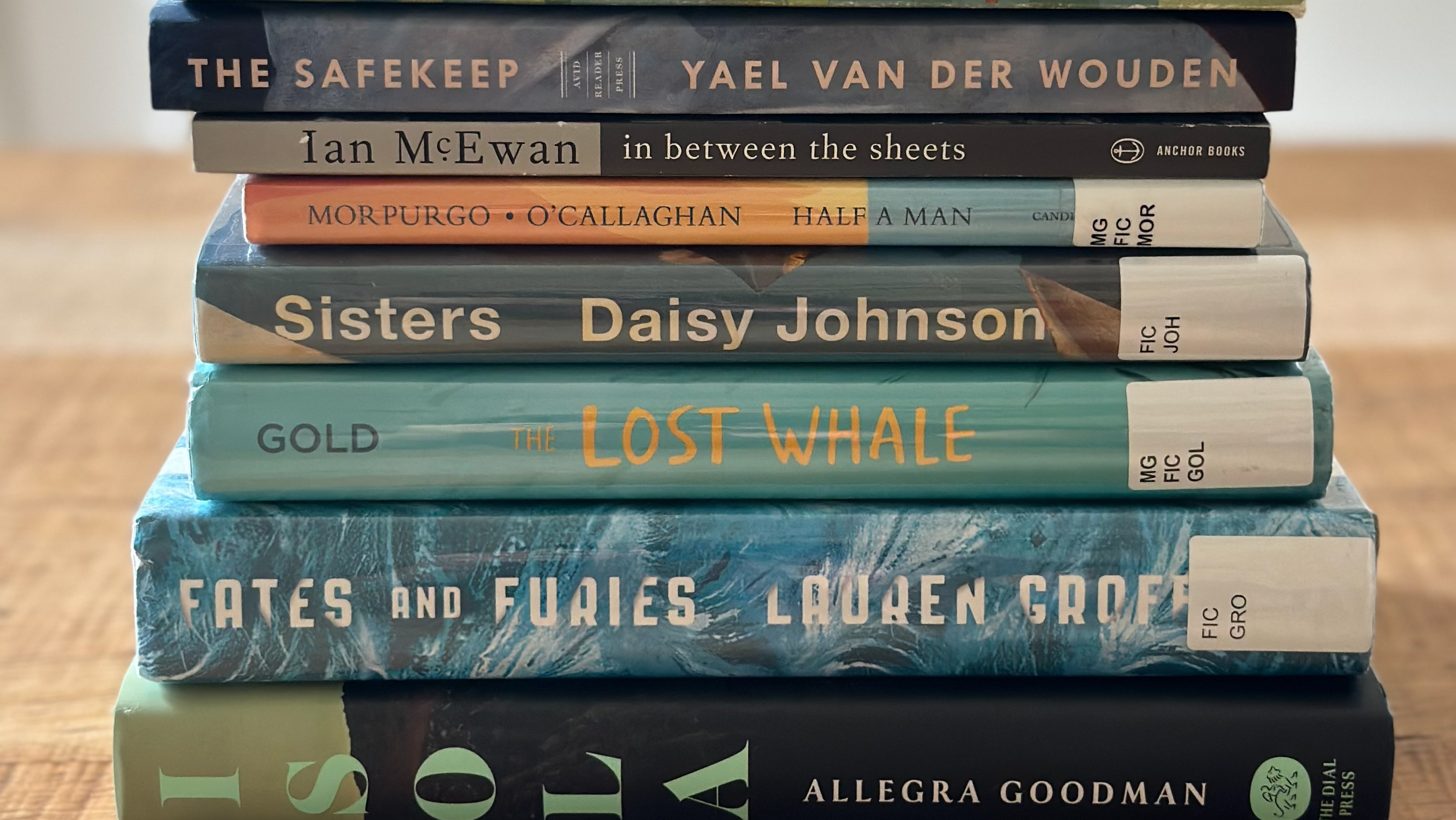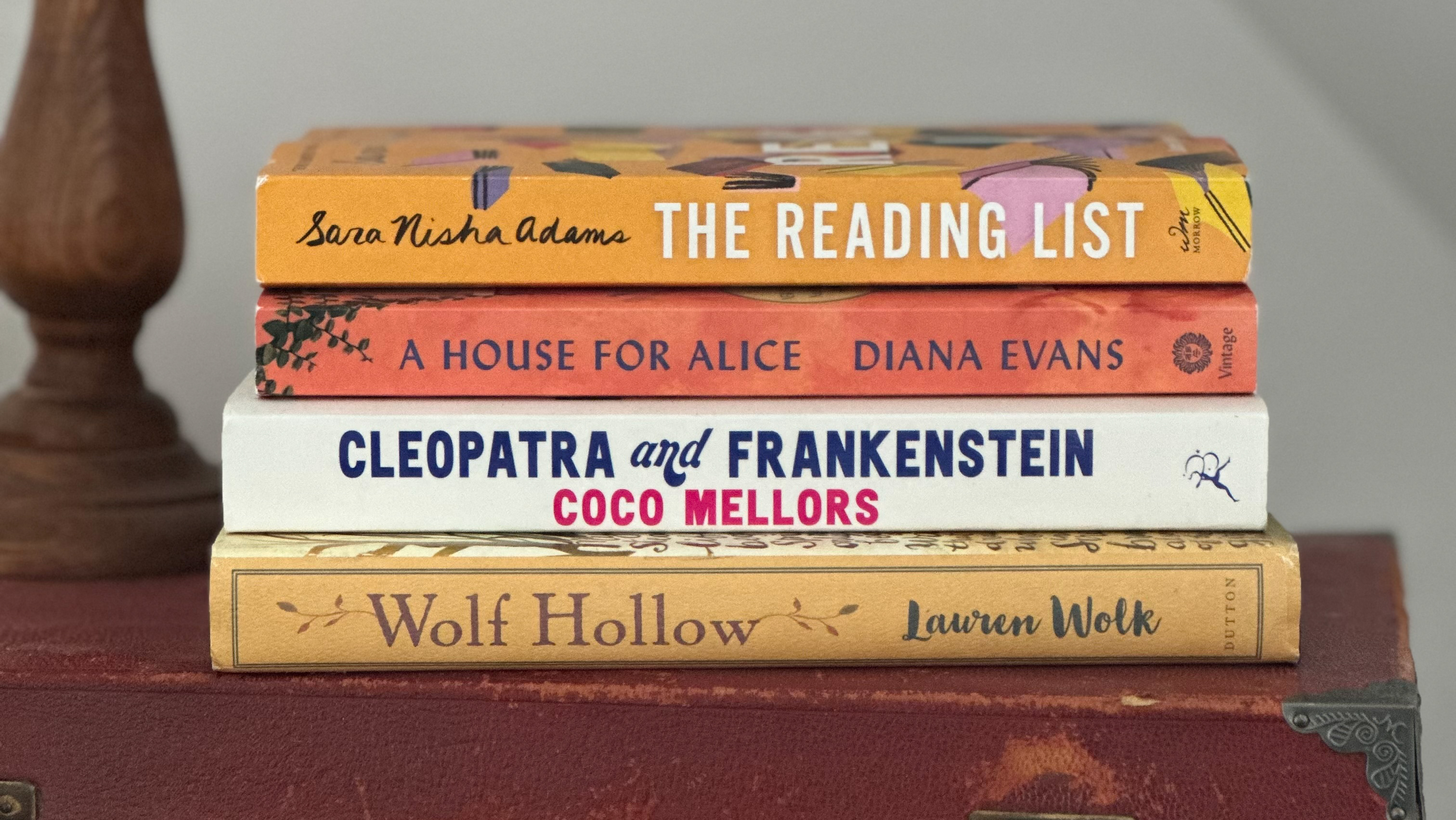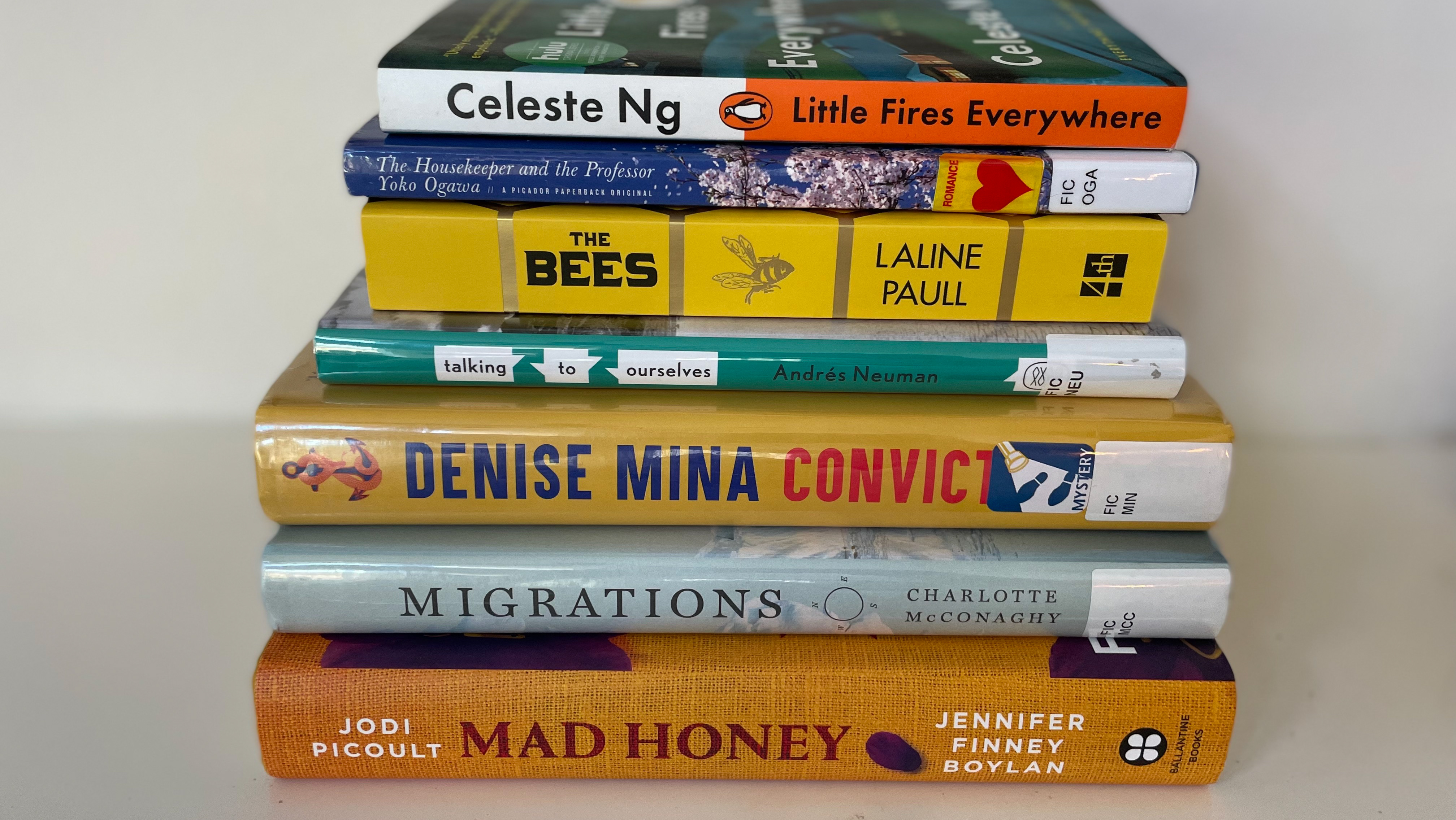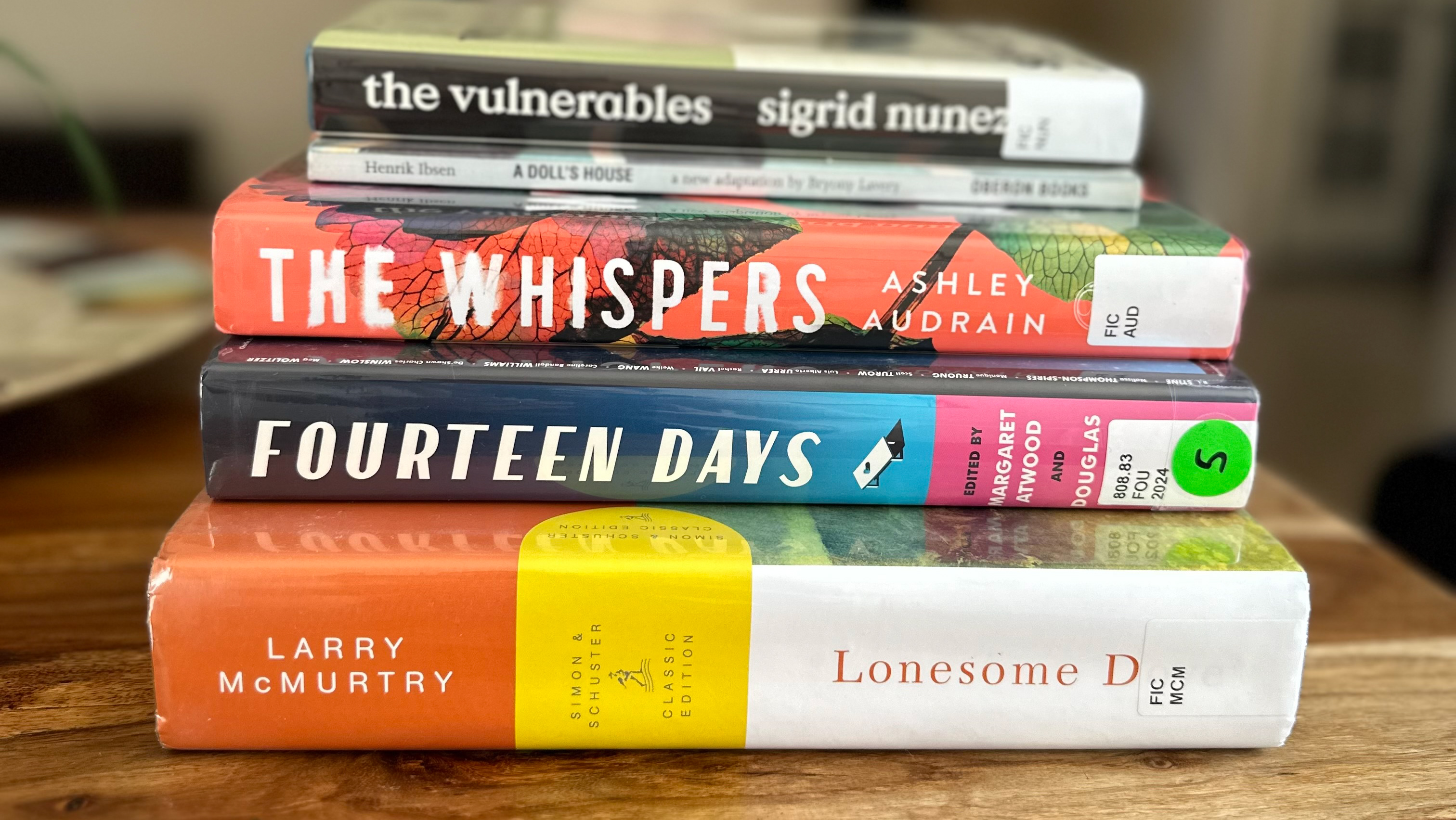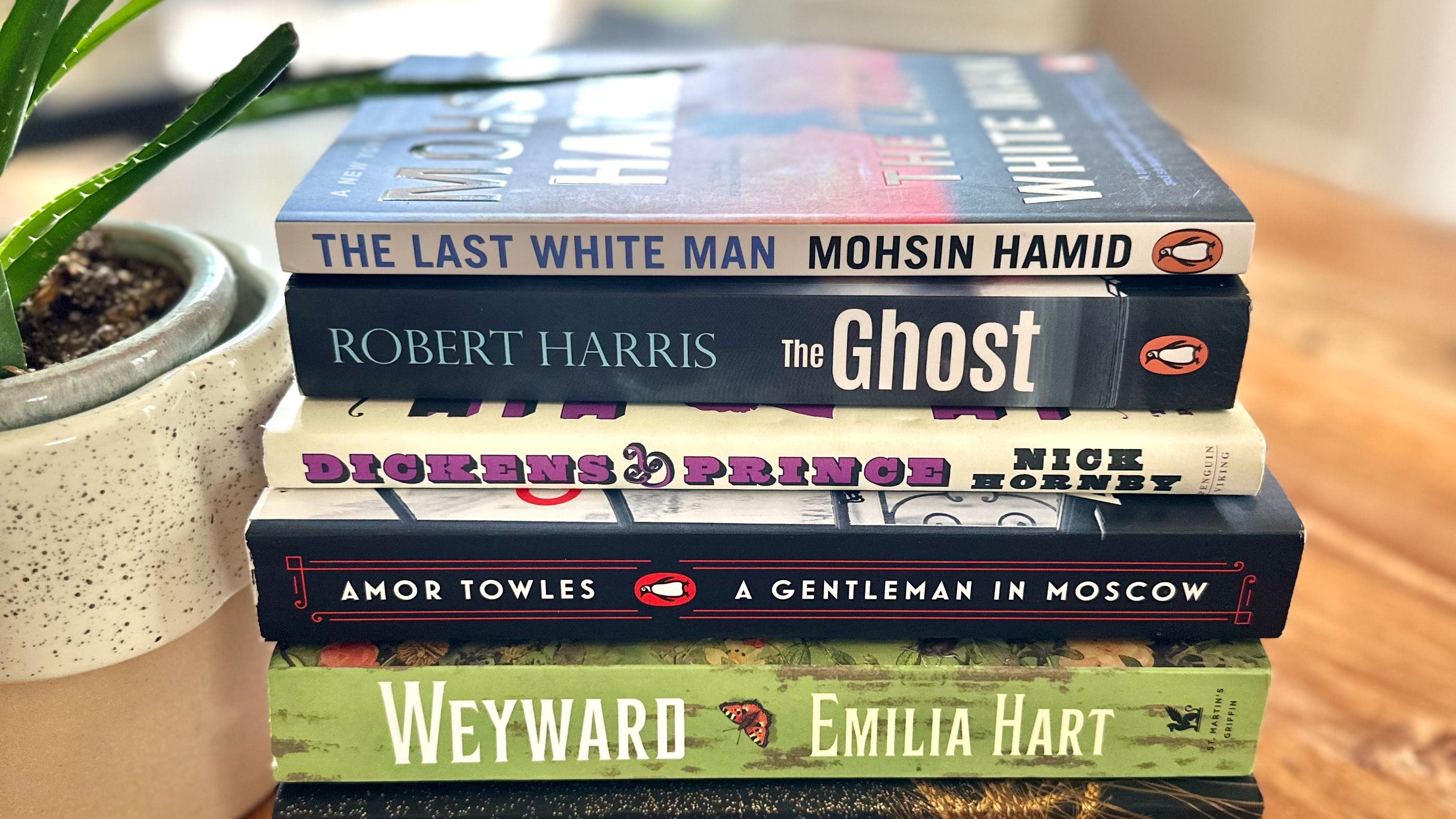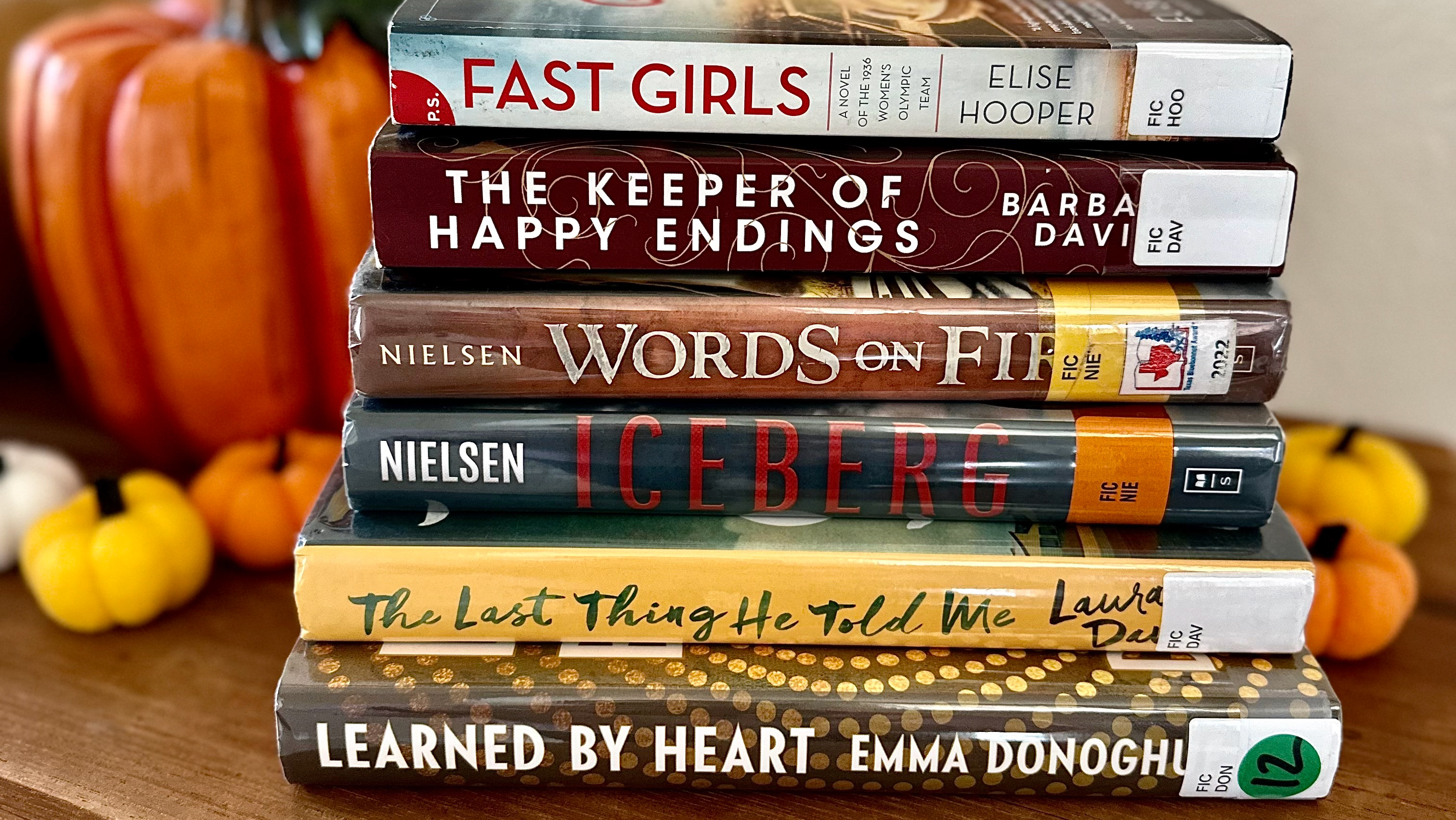Yellowface by R.F. Kuang
Goodreads Review
What a voice! What a character! What a circumstance! And finally, what chaos that ensues in this uncomfortable representation of the book publishing industry. This satirical take on important factors of our current world including racism, diversity, social media, cultural appropriation, privilege and even friendship does exactly what I expect R.F. Kuang set out to do which is to send chills and darkly humorous discomfort to her audience.
The scarcely credible but sadly realistic (?!) story is relayed through the 1st person voice of June Hayward. She's not that nice a person and a lot of her commentary is selfish and ignorantly defensive. The freakish opening incident follows the rules of storytelling and snaps the reader and the story to a heightened sense of attention from the first line. June Hayward is not Asian American but her literary peer Athena Liu is. When June is present at the death of her "friend", she steals Athena's manuscript, which we learn was just finished but in notebook form only and is about the uncelebrated contributions of Chinese laborers to the war effort during World War I. What follows is dark, nasty, sinister and satirical as June Hayward edits said manuscript, takes it on as her own work, changes her name to Juniper Song and rebrands herself to success using Athena's legacy. Wow, right?!
As you might expect, June becomes so wrapped in her lies and interwoven web of deceit that her mind starts to play tricks with her. She sees ghosts of Athena, she is obsessed with online media messages and comments, fuels horrendous racism with her appropriation, and then tumbles, quite rightly to a cancelled state, both in herself and in the exposed literary world of which she had become a celebrity.
For some reason, I felt echoes of the horrific psychological thriller by Daphne du Maurier's 'Don't Look Now' as I read the final scenes of this novel, perhaps because of the darkened evening moment of no return, the steps, the visions and absolute paranoia, but also the glimpses of green shawl (like the red cloak in Maurier's story) with which June is obsessed. Both of these texts are truly haunting.
I enjoyed the complicated reworking of and comment on the Victorian age in R.F. Kuang's 'Babel' but the contemporary messages in this novel 'Yellowface' are far stronger and I expect will make this a novel to be talked about for some time.
review by Christina Francis-Gilbert
The Most Fun We Ever Had by Claire Lombardo
Goodreads Review
Claire Lombardo's debut novel will consume you. On an emotional level, this novel has everything. It has a family full of broken, vulnerable, dysfunctional characters but many of those same family members are strong, loving and just plain real. That's not to say that I liked or empathised with all the characters, in fact I did not like many, if not all of the central protagonists. Particular figures stood out as being the voices who might appeal to readers and they were Jonah, the abandoned teenage son of one of the Sorenson sisters and in some ways the patriarchal figure of David.
Lombardo pushes her female characters to despair throughout and we see nasty, ugly, selfish interactions between all four of the Sorenson sisters: Wendy, Violet, Liza and Grace. Even their mother Marilyn does not present herself as a character with which readers would want to empathise. Nevertheless, the story develops so piercingly that the malice of these sisters drives us to pity them and wish they would hold a little bit back from each other. Everything they think and feel, whether it is positive or negative seems to be shared or detonated amidst their family networks to the detriment of everyone. This is in spite of additional secrets that are alternatively held from each other (also to the detriment of these poor characters).
There were a number of factors that did not appeal to me in Lombardo's representation of such an epic family. The balance of nasty, jealous thoughts vs. loving, kind thoughts towards siblings seemed off to me. The loving, caring nature of the parents Marilyn and David was at odds with how mean their children were to each other, or at least what we learnt of their internal thoughts. The frequency of the "F***" word was far too high (as was the —em dash) and in many cases, the word was badly placed in the sentence. The parents and their absorption with each other and their active sex life was a little unnecessary for my liking. The novel is a long read with over 500 pages but I was absorbed and able to read to the end but it could have been condensed. I will pick up Lombardo's novel 'Same As It Ever Was' since I'm reading it with one of my book clubs and I'm interested to see if the style will be different in her second published work.
Despite all of that, much of this novel is appealing, in an engrossing, psychologically horrific sort of way. Worth a read, if only to see if you think the same way! And Reese Witherspoon had the novel on her list, possibly because it does have echoes of Celeste Ng, Elin Hilderbrand and Liane Moriarty.
If I were to sum up this novel, I'd have to say 'Nasty but intriguing characters and circumstances'.
review by Christina Francis-Gilbert
The Time of Your Life: Getting On With Getting On compiled and illustrated byJohn Burningham
Goodreads Review
'Burningham has brought together a wonderfully diverse group of writers, broadcasters, politicians and others who've lived a little more than most ... Brilliantly illustrated' The Oldie
''John Burningham has provided us with the panacea to take the sting out of advancing years. Reading his book makes you almost want to get into the state of being an "older person". It should be read by everyone over thirty.' Richard Wilson
'Doris Lessing, Denis Healey, Tom Finney, Ronald Searle, Ivor Cutler, Vera Lynn, Patrick Moore, Claire Rayner and many others contribute to John Burningham's delightful book with the wisdom and wit that comes with age. These triumphant celebrations of getting older are woven in with a fitting collection of quotations from Cicero, Shakespeare and Robert Redford to name but a few, and fifty brilliant drawings by Burningham himself.'
review by Christina Francis-Gilbert
The Storm We Made by Vanessa Chan
I found this a difficult novel to read. It tells the often harrowing and personal experiences of what happened as colonial Malaya shifted from British to Japanese occupation against the backdrop of a World War. Events take place in Bintang, Kuala Lumpur and chapters alternate between narratives from central characters: Cecily, Abel, Jasmin and Jujube in either 1938 British-occupied Malaya or 1945 Japanese-occupied Malaya.
The novel is powerful and graphically described in places. For me, I read it within the genre of historical fiction and I found it harrowing to read, but I did learn more of WWII as it was suffered in Malaya.
Cecily Alcantara is the voice who opens the action describing the teenage boys in her neighbourhood who are going missing. She is an unlikable character and I was unable to truly connect with her. Even though she justifies her choices in taking on espionage work, her internal thoughts are quick-tempered and badly considered in many cases.
We learn that a decade prior to 1945, Cecily met a man who has two identities. He is Bingley Chan, a Hong Kong merchant gentleman on the surface but also General Fujiwara from the Japanese Imperial Army who we learn through backstory had lured her into a life of espionage. She passed information from her unsuspecting husband Gordon who works for the British government onto Fujiwara who dreamed of an "Asia for Asians" and supported a plan for the Japanese-occupation of Malaya.
Cecily's poor children are victims of her actions and truly caught my sympathy. Her son Abel is horrifically abused and the torment and experiences he goes through as a fifteen year old in a Japanese POW camp pushed me towards not finishing the book a couple of times. Cecily's eldest daughter Jujube works at a tea house frequented by Japanese soldiers and she is forced into a mothering role of protection for her sister Jasmin. The youngest Jasmin is the voice I felt most affiliated with throughout the stories and she too suffers excruciatingly throughout but is ultimately a survivor, managing to stay away from "comfort stations" and help a friend Yuki to also escape.
review by Christina Francis-Gilbert
Tell Me Everything by Elizabeth Strout
Strout's 10th book encompasses storytelling with her main characters Olive Kitteridge, Lucy Barton, Bob Burgess and his brother Jim, their ex- and current partners William, Margaret, Helen and Pam and even ISabelle Goodrow, all converging in what is now the familiar location of Crosby, Maine, the final character in this powerful literary reunion. We know a great deal of the troubled "broken" upbringings of the characters and their honest revelations continue to be shared in a simple manner with the reader.
Olive Kitteridge, now 90 and living alone in a retirement community wants to document her mother's story and calls upon local author Lucy Barton to visit her. Lucy has recently moved back home from New York City and their meeting prompts a series of afternoons when they pass on stories to each other about the "unrecorded lives" of people they know. Lucy, in turn shares them with her long-time friend Bob Burgess on rivertime walks and who she in turn urges to TELL ME EVERYTHING.
Bob Burgess, described by Olive as having "a quiet sadness to him, most likely from [t]his early misfortune" is the voice and character who held me tightest in this novel infused with empathy and emotionality. Let me say here, I love Elizabeth Strout's writing and the way it draws me into relationships, experiences and understanding of character with such powerful unexpected strength.
Seasonal weather patterns and simple descriptions of nature such as the sunlight and the wind are used in spectacular fashion to foreshadow or echo the changing moods and emotions of characters. Lucy Barton sums up a question that is prevalent for many of the characters "What does anyone's life mean?" as well as some of her final words saying "Love comes in so many different forms but it is always love. If it is love, then it is love."
Finally, the tragedy of Matt Beach, a new character accused of killing his mother and given legal representation by Bob Burgess is a powerful addition to Strout's plot network. I love that Bob Burgess develops a fatherly role and feeling of kindness and responsibility for Matt.
Strout's soothing sparse dialogue throughout continues to strike me as a reader and I find her observational descriptions and interiority of characters to be profound. The opening chapter was the only section of the novel that felt a little forced since it is evident Elizabeth Strout wanted to bring new readers of her work up to speed with quick explanations of characters and places. Nevertheless, the simplicity of her opening line "This is the story of Bob Burgess..." which ends by telling us "...he would never believe he had anything worthy in his life to document. But he does; we all do," is brilliant in a story such as this all about storytelling!
And finally, I love how the ethereal goddess-like character of Lucy Barton, who seems more and more like a spirit, rather than a real person, is juxtaposed with the idiosyncratic but iconic character of Olive Kitteridge whose words are so blunt but sincere.
I hope one day to be able to write like Elizabeth Strout!
review by Christina Francis-Gilbert
A Mercy by Toni Morrison
Packed with importance, Toni Morrison's nineteenth novel 'A Mercy' tells resonating and subtle messages. It is a mesmerising but in many ways soul-destroying read.
Readers are moved with the words "Don't be afraid" to the experience of a young female voice who is observant or both surroundings and emotions. The novel is set during the 1680s in colonial America, "a time just before the earliest parts of 'Beloved', before bonded labour became a principal foundation of American wealth, when that grotesque idea was just forming in the marketplace".
Readers of 'A Mercy' are gently encompassed by the personal storytelling from a handful of characters including Florens, the young girl with a love for shoes whose mother laments that she has "the hands of a slave and the feet of a Portuguese lady". In addition, other voices include narrators Jacob, an Anglo-Dutch trader and adventurer, who "despite his distaste for dealing in "flesh" [he] takes a small slave girl [Florens] in part payment for a bad debt from a plantation owner in Catholic Maryland". Jacob's wife Rebekka, is the mistress and herself a prior victim of religious intolerance back in England. She is described as "the stubborn one, the one with too many questions and a rebellious mouth," and her sickness and isolation forms a central part of the tale. Following her husband Jacob's death, she lives in the wilderness with Lina, her native American housekeeper and Sorrow, a girl troubled in her mind, who joined Jacob's predominantly female homestead and his built community after almost dying in a shipwreck. However, Lina lets the reader know that "as long as Sir was alive it was easy to veil the truth: that they were not a family - not even a like-minded group. They were orphans, each and all." In effect, these self-surviving women are all slaves to one thing or another.
Morrison said that she wrote 'A Mercy' in an effort to "remove race from slavery." She notes that in researching the book, she read 'White Cargo' by Don Jordan and Michael Walsh, and was surprised to learn that many white Americans are descended from slaves.
“Every civilization in the world relied on [slavery],” says Morrison. “The notion was that there was a difference between black slaves and white slaves, but there wasn’t.” [NYU Press]
This novel is gripping in its collective storytelling but I believe only a authorial voice like Toni Morrison could have written such a novel and included such depth. The overlaps between voices sharing their experiences is precise and Morrison's novel structure is smooth. It is considered a prequel to her novel 'Beloved' and called "a powerful tragedy distilled into a jewel of a masterpiece."review by Christina Francis-Gilbert

